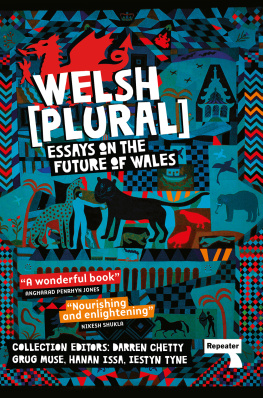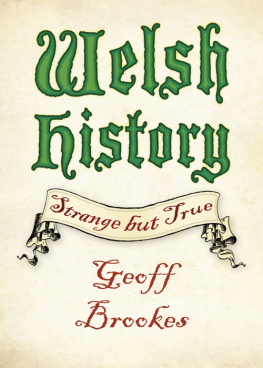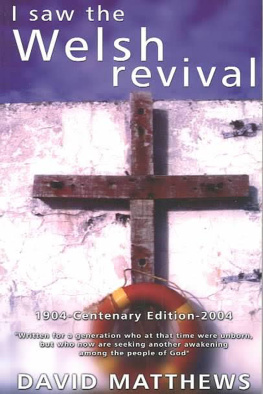


Published by Repeater Books
An imprint of Watkins Media Ltd
Unit 11 Shepperton House
89-93 Shepperton Road
London
N1 3DF
United Kingdom
www.repeaterbooks.com
A Repeater Books paperback original 2022
Distributed in the United States by Random House, Inc., New York.
Copyright Repeater Books 2022
ISBN: 9781913462666
Ebook ISBN: 9781913462888
Our cover design by Rebecca Wright is based on the Wrexham Tailors Quilt, designed and made by James Williams between 1842 and 1852. Used with kind permission from the National Museum of Wales.
All rights reserved. No part of this publication may be reproduced, stored in a retrieval system, or transmitted, in any form or by any means, electronic, mechanical, photocopying, recording or otherwise, without the prior permission of the publishers.
This book is sold subject to the condition that it shall not, by way of trade or otherwise, be lent, resold, hired out or otherwise circulated without the publishers prior consent in any form of binding or cover other than that in which it is published and without a similar condition including this condition being imposed on the subsequent purchaser.
Printed and bound in the UK by TJ Books
An utterly brilliant collection that throws doors and windows open to reveal many kinds of Welshness, past and present.
S OPHIE A NDERSON , AUTHOR OF T HE G IRL W HO S PEAKS B EAR
Honest, authentic, funny and brutal. And so refreshing you could wash your face in it.
M ATT B ROWN , T HE M AB : 11 E PIC S TORIES FROM T HE M ABINOGI
The essays in this book are timely and long overdue.
E RIC N GALLE C HARLES , AUTHOR OF I, E RIC N GALLE
Entertaining, erudite, political, these essays will be a joy to anyone with an interest in our nation.
J ONATHAN E DWARDS , AUTHOR OF M Y F AMILY AND O THER S UPERHEROES
This tailors quilt of essays weaves together bright threads of insight and understanding as a wide range of writers tease out meaning from the colourful tapestry that is Wales.
J ON G OWER , AUTHOR OF T HE S TORY OF W ALES
Throws light on new ways of being Welsh, on a future that can encompass multiple identities and experiences that can only enrich our ideas of Welshness.
C ATHERINE J OHNSON , AUTHOR OF T HE C URIOUS T ALE OF L ADY C ARABOO
Sets out to challenge outdated ideas of Welsh history, culture and identity and succeeds in its aim.
R HIAN E. J ONES , AUTHOR OF P AINT Y OUR T OWN R ED
Insightful, poetic, angry, informative such a rich tapestry of voices. A wonderful book.
A NGHARAD P ENRHYN J ONES , CO - EDITOR OF H ERE W E S TAND
A fascinating and essential collection exploring the complexities, contradictions and potential of modern Wales.
G REG L EWIS , AUTHOR , W ALES AND THE W ORLD SERIES
These essays ask the hard questions with thoughtfulness, urgency and endless wit. A detailed, entertaining exploration of identity.
N IDA M ANZOOR , WRITER AND DIRECTOR OF W E A RE L ADY P ARTS
A patchwork of personal pieces that together amount to a necessary national reckoning.
D YLAN M OORE , AUTHOR OF THE WELSH AGENDA
Taking on the mantle of cultural analysis from Raymond Williams, the book features a wide range of some of the most talented writers from Wales. Diverse and thought-provoking and at times very funny this is a book to treasure and share for generations to come.
LL EUCU S IENCYN , CEO, L ITERATURE W ALES
A vessel for a generously abundant, gentle-spirited yet often insurrectionist plurality, whose welcome lack of inhibition combines with intellectual rigour from many of Wales most ground-breaking thinkers.
E MILY T RAHAIR , EDITOR P LANET : T HE W ELSH I NTERNATIONALIST
Fascinating, thought-provoking, poignant and powerful. An absolute must read!
E LOISE W ILLIAMS , I NAUGURAL C HILDREN S L AUREATE W ALES
A smart and timely exploration of Welshness and the role of identity in shaping our politics and potential for solidarity.
G ARY Y OUNGE , AUTHOR OF W HO A RE W E ? A ND S HOULD IT M ATTER IN THE 21 ST C ENTURY ?
Contents
M ARTIN J OHNES
M IKE P ARKER
C ERYS H AFANA
D ARREN C HETTY
K ANDACE S IOBHAN W ALKER
G ARY R AYMOND
D URRE S HAHWAR
G RUG M USE
J OE D UNTHORNE
N IALL G RIFFITHS
S HAHEEN S UTTON
I ESTYN T YNE
M ARVIN T HOMPSON
M ORGAN O WEN
A NDY W ELCH
C HARLOTTE W ILLIAMS
D AN E VANS
H ANAN I SSA
R ABAB G HAZOUL
Editors Introduction
Wales is a singular noun but a plural experience.
Dai Smith, Wales! Wales? , 1984
Where is it now, this Wales? Where is the real identity, the real culture?
Raymond Williams, Welsh Culture , 1975
Can you imagine Welshness as both distinct and inclusive? This was the challenge we gave the writers in this collection. We invited contributors whose work we had enjoyed; established and emerging writers who we knew had an interest in thinking about Wales and Welshness, and who we thought could respond to our challenge in original ways.
Raymond Williams questions in the above quotation were part of a mid-twentieth-century debate about what Wales was. The decline of the Welsh language, chapel-going and the industries that modern Wales had been built on were undermining Welsh cultural distinctiveness and creating fears about whether Wales could survive at all. As a stateless nation, these debates were hardly new, but social, cultural and economic changes were adding a new sense of urgency to them. One of these changes was the movement of peoples, as individuals from England and the Commonwealth came to Wales in search of better lives. Migration into Wales had a long history, but combined with the sense that some Welsh people were turning their backs on their linguistic and cultural inheritance, what Wales was and who the Welsh were was a matter for fevered discussion in books, television and radio shows, and communities. Everywhere in the UK had a sense of change, but in Wales the questions often seemed to be more fundamental. The creation of the National Assembly for Wales in 1999 answered some of the worries voiced by Williams. It gave everyone in Wales political citizenship regardless of who they were. But as migration and globalization increased, devolution failed to capture the popular imagination and the future of the Welsh language remained as perilous as it had been in the preceding years. Williams questions thus remained pertinent; this book offers some new answers to old questions.
Much of the contemporary discussion about the future of Wales takes place in the political realm whether through political parties, the various movements arguing for independence or the frenetic world of online debate. But this book came about because we believe that writers can make a valuable contribution through work that pulls back from the immediacy of politics and contributes to the collective imagination. You wont find a political manifesto here. Instead, you will find the kind of creative, critical writing that we believe can inform, enrich and enliven political conversations currently taking place in Wales and beyond. And you will find resistance resistance to the idea that national identity can be based on a single story be that story one of language, of conquest, of farming, of industry or of sport.
Next page







